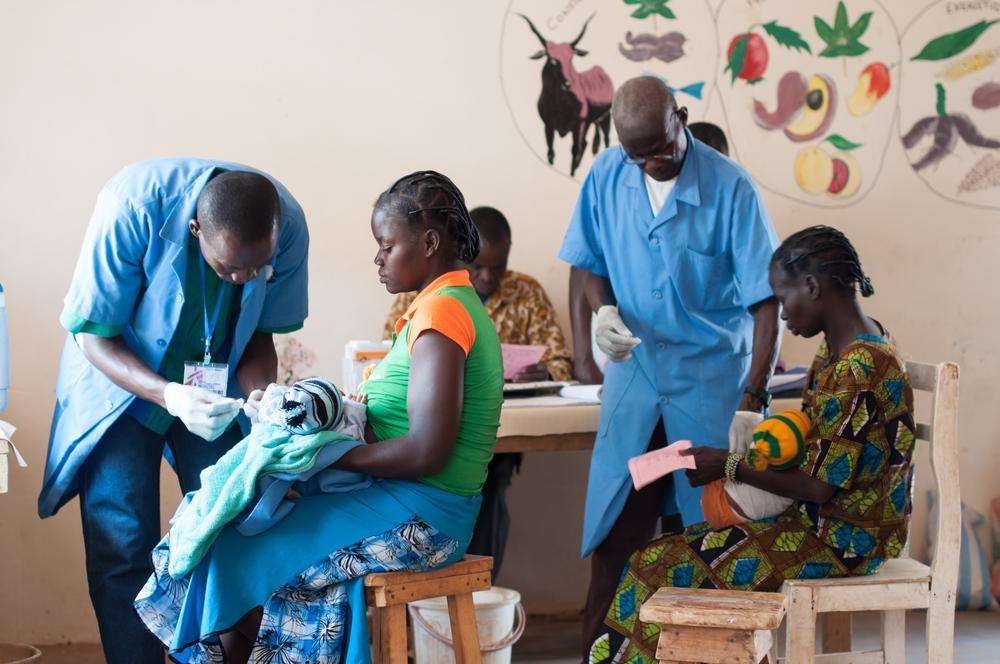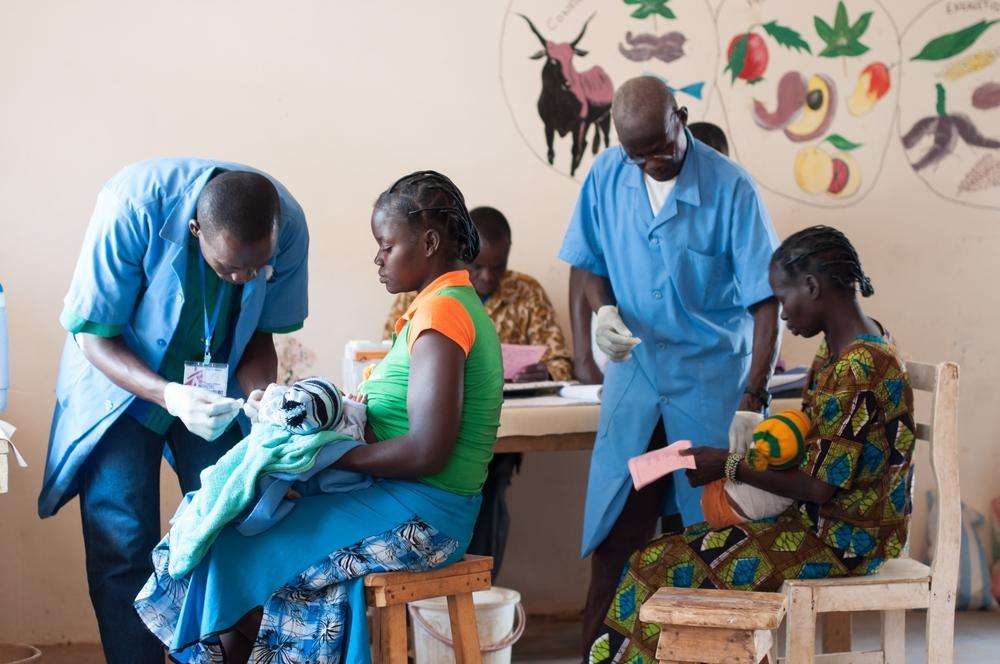It’s an ordinary Friday morning at the MSF-supported health center in Boguila, in northern Central African Republic (CAR). Christelle, 19, arrived in the early hours of the morning and gave birth at 9:30 a.m. with no complications. Healthy and weighing about 6.5 pounds, the baby girl is Christelle’s second child. By lunchtime, after the baby has received her routine vaccinations, mother and child are able to join their family again, though they will return to the center for postnatal check-ups.
Christelle is one of almost 90 women who gave birth in the MSF-supported health center in the first two months of 2015. She lives nearby, in Boguila town, but many pregnant women come here from much farther away, to give birth or to get help after a complicated home birth in which they may have hemorrhaged or developed an infection. They arrive by bicycle, motorbike, or on foot, even at night and from as far as 50 kilometers (about 31 miles) away.
“Women suffer a lot,” says Rachel Ndoyan, a midwife and mother of six. “When a new baby is born, it’s a moment of pain, but also of happiness. I fight with MSF against mortality in Boguila. The most important thing is that we do it [by] providing free health care.”
Just one year ago, in this same building where midwives like Rachel now help to bring new life into the world, 19 people, including three MSF staff members, were killed during an armed robbery. In response to the tragedy, MSF made the difficult decision to reduce its activities in the region. Now the facility functions as a health center rather than a hospital, with a team of Central African staff conducting outpatient consultations, providing reproductive health care; vaccinations; and treatment for malaria, malnutrition, HIV, and tuberculosis (TB). People’s health needs remain as urgent as ever, and there is no other medical care available in the area.
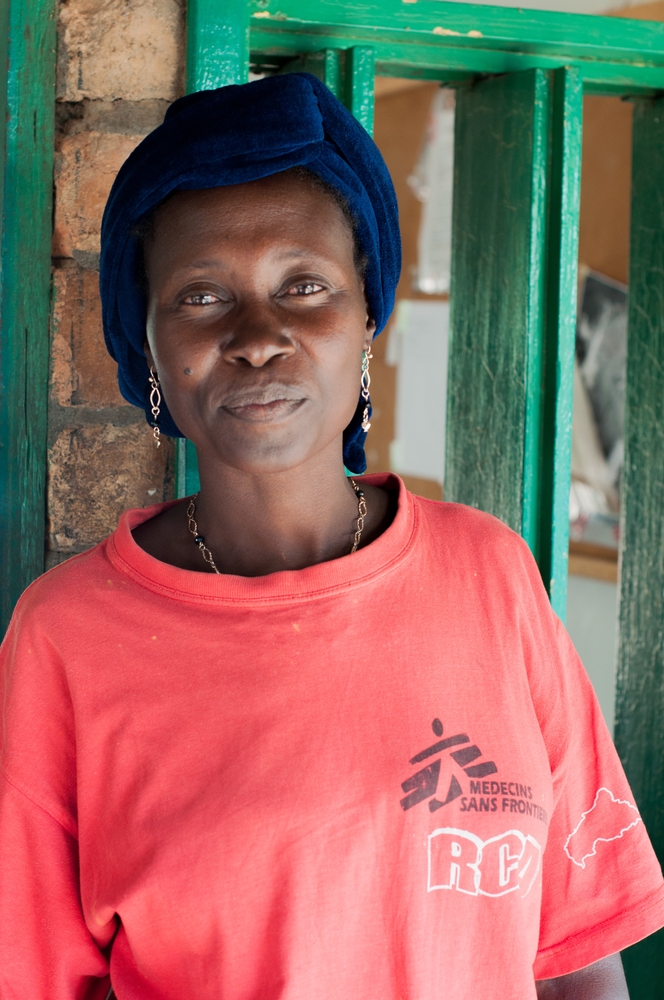
|
“Malaria is the main disease, especially for children,” says Elysée Tando, supervisor of the health center. “Half of our patients testing positive are under five years. Respiratory tract infections are also a common problem, together with parasites and, among the younger patients, diarrheal diseases. People spend a lot of time in the fields for the harvest, or in the bush for fear of the violence, with consequences for their health. Sometimes they are also afraid to travel here.”
As a result, MSF looks for other solutions to provide medical aid to people living in remote areas. In the areas around Boguila, MSF supports four health posts where medical staff provide early screenings for malaria. They do the same at Boguila health center, referring the most severe cases to the nearest hospital, also run by MSF, in Paoua, a two-hour drive away.
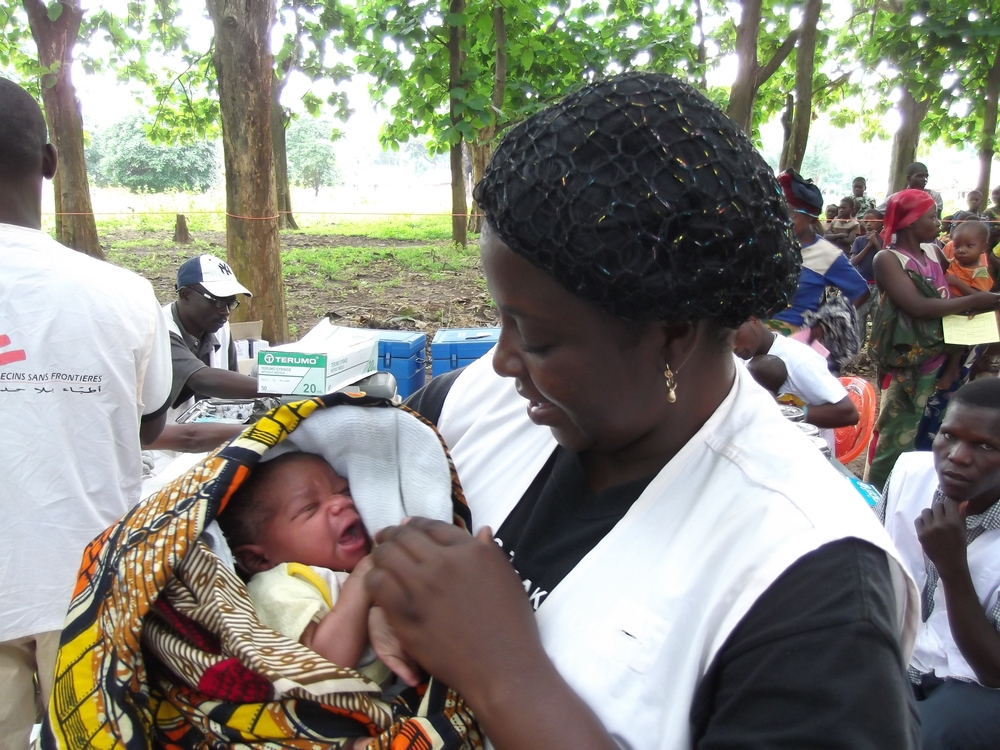
|
Though the health center is up and running, the threat of violence still looms large. Whenever there is rumor of an attack by an armed group, patients and health center staff alike often have no choice but to flee into the bush to hide. As in many areas of CAR, insecurity in Boguila restricts the movements of MSF teams and makes it hard for them to reach people in hiding.
“It’s very hard to work like this,” says Lois, an assistant nurse at the MSF health center in Boguila, “but people’s health needs are huge, and MSF is the only health provider. Lots of patients come here, many of them children. Without health care—without MSF in Boguila—our children would be like dead leaves falling from a tree.”
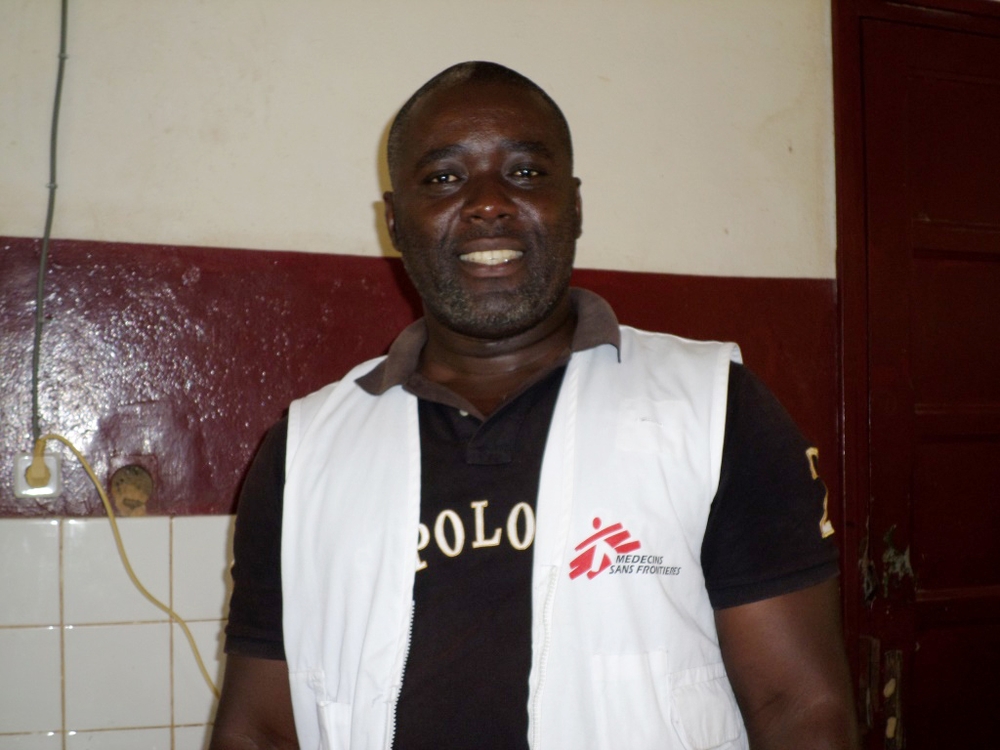
|
MSF has been working in Boguila since 2007. In 2014, the team carried out 194,157 medical consultations, more than 80 percent of them for malaria, and assisted 453 deliveries.
MSF has been working in Central African Republic since 1997, and currently has more than 300 international staff and more than 2,000 Central African staff in the country. In response to the crisis, MSF has doubled its medical projects since December 2013, and is running some 20 projects, including some for Central African refugees who have sought shelter in neighboring countries including Chad, Cameroon, and Democratic Republic of Congo.
